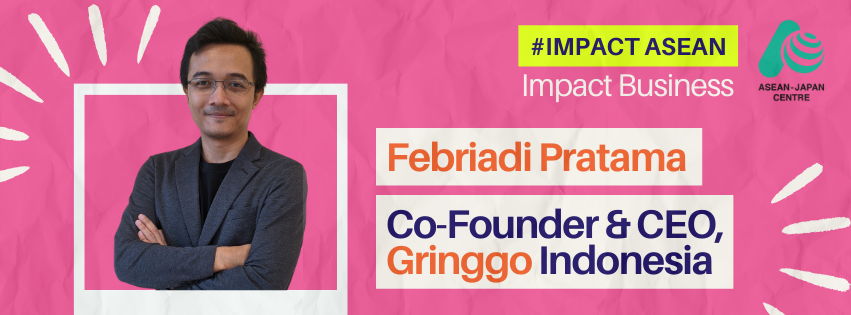Febriadi Pratama is the Co-Founder and CEO of Gringgo, a startup leveraging technology to solve sustainability issues, currently focusing on AI-based solutions to address Indonesia’s waste management problem. He also oversees its non-profit arm as the Head of the Gringgo Indonesia Foundation. Febriadi hopes to embrace collaboration to create scalable technology-based solutions replicable in other countries facing similar SDG challenges.
Read about Febriadi’s #impact journey below.
Q. Tell us about your impact business, Gringgo. You have moved past “just ‘trash for tech’” activities – what are Gringgo’s main activities now?
At Gringgo, we see sustainability as a whole. Beginning from waste management, we look at it with regard to the entire landscape of sustainability. For example, we generate energy consumption and efficiency analyses for industries, like textiles. We can determine how much energy is consumed for every shirt made. We also create energy alternatives, such as transforming human waste into briquettes for industrial use.
Our main activity used to be operations – taking recyclables from the community. Then we began to understand that in the industry of sustainability, especially through waste management, there are so many players already conducting operations-based activities. We realized many of these actors actually need digital solutions – data collection, aggregation, everything – but do not have the capacity or resources to do so. Hence, since 2020 we began to focus on developing the technology to digitize waste collection to aggregation through the Gringgo platform.
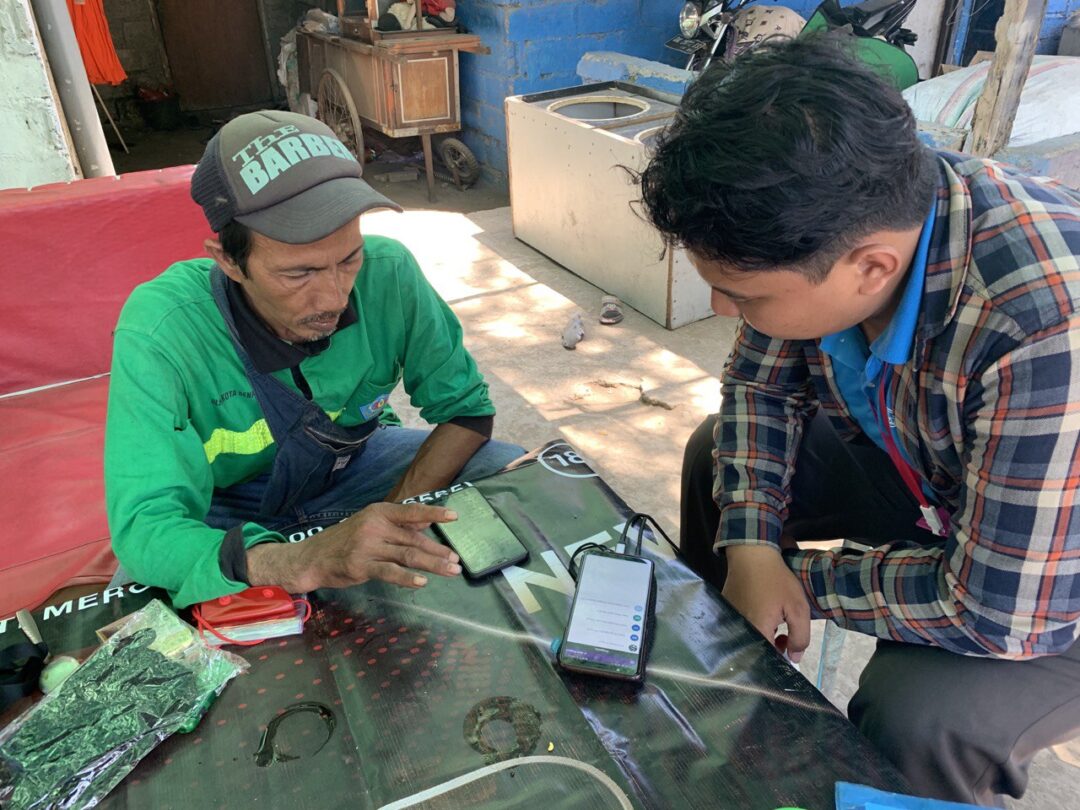
Q. Take us back to the beginning. What motivated you to begin your #impact journey?
I met my co-founder Olivier Pouillon during the Hackathon Startup Weekend in Bali in 2014. He has been a waste practitioner for many years, and he introduced me to the world of waste management. I felt a bit embarrassed because he was American and I was Indonesian, but it was I who never fully grasped the waste issue on the ground until then.
Moving to Bali in 2012, I realized the absence of daily trash collection, making it challenging to do something so fundamental: to dispose of waste. We noticed that many Indonesians lack awareness about waste management, often resorting to burning or improper disposal.
Our initial idea was to make waste management easy, fun, and rewarding, focusing initially on elementary school children. We piloted activities in Bali but soon realized the larger problem of data scarcity, even within the government. Shifting our focus, we aimed to gather accurate data on waste management issues. With the initial support of a friend’s donation, we founded Gringgo. From there, we pitched and pitched and pitched. We spoke with Investor, Corporations, NGOs, and many international organizations. In 2016 we secured our first major grant from the US State Department’s Secondary Cities project, to utilize Geographic Information System (GIS) technology to address real-world problems. The project allowed us to connect with waste-conscious communities in Bali – and everything sprung from there.
Q. What is your goal as an #impact entrepreneur?
One of my main motivations moving forward is focusing on the impact of our work as a team and company on others. When we started Gringgo, very few were venturing into sustainability or waste management startups. Through events, talks, and mentorship, we’ve become a part of the momentum mobilizing others to join this purpose-driven sector. Witnessing more startups focusing on waste management is fulfilling—it’s not competition, but rather a sign of more people caring about the cause.
And this motivates me. I cannot separate Gringgo from my personal life. Because as a person and as a professional, I want to see Gringgo that creates a ripple effect in the sustainability field; simultaneously, I constantly seek ways to learn and collaborate with other startups to learn more about this industry.
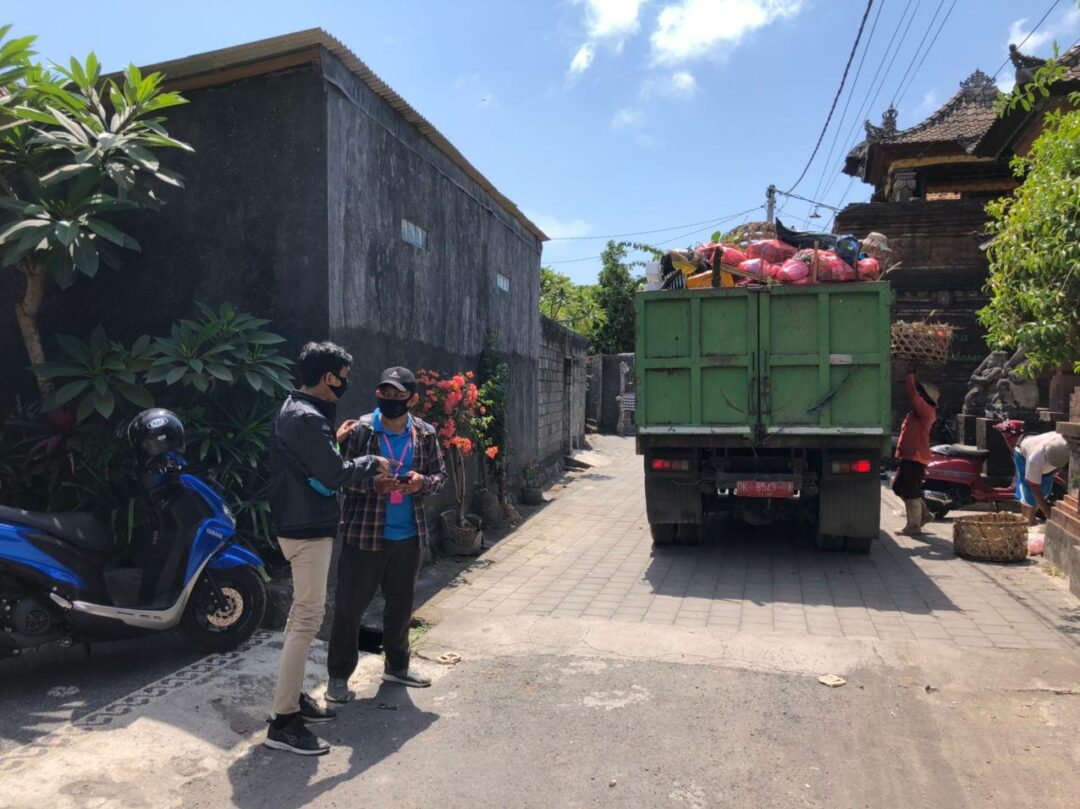
Q. You kickstarted 2 startups previous to Gringgo but decided to end their operations. What happened? What makes Gringgo’s business model more sustainable compared to your other projects?
When discussing success and sustainability, it’s a bit of a gray area. Both companies can be sustainable, but success depends on various factors like growth or impact. In my previous company – an interior design company – although profitable, I felt a lack of purpose in just making furniture and profit. Gringgo, however, is different. It’s driven by purpose, not just profit. I’m a Muslim, and there is a saying in my religion that goes, “Sebaik-baik manusia adalah yang paling bermanfaat bagi manusia” or, “The greatest form of a person is a person who is useful to their surroundings”. Knowing that there is purpose in my endeavour is what gives me purpose.
Q. What support are you seeking for from government and ecosystem builders?
First is social enterprise registration – while we identify as a social enterprise, we have 2 entities – nonprofit and for-profit – as there are currently no incentives for social enterprises in Indonesia.
One of the issues in the landscape of sustainability is everyone is trying to compete with everyone, even for government support. I feel like if there were a continuity from the central to local government in programs and policy, we could more efficiently collaborate on an agenda together with local governments.
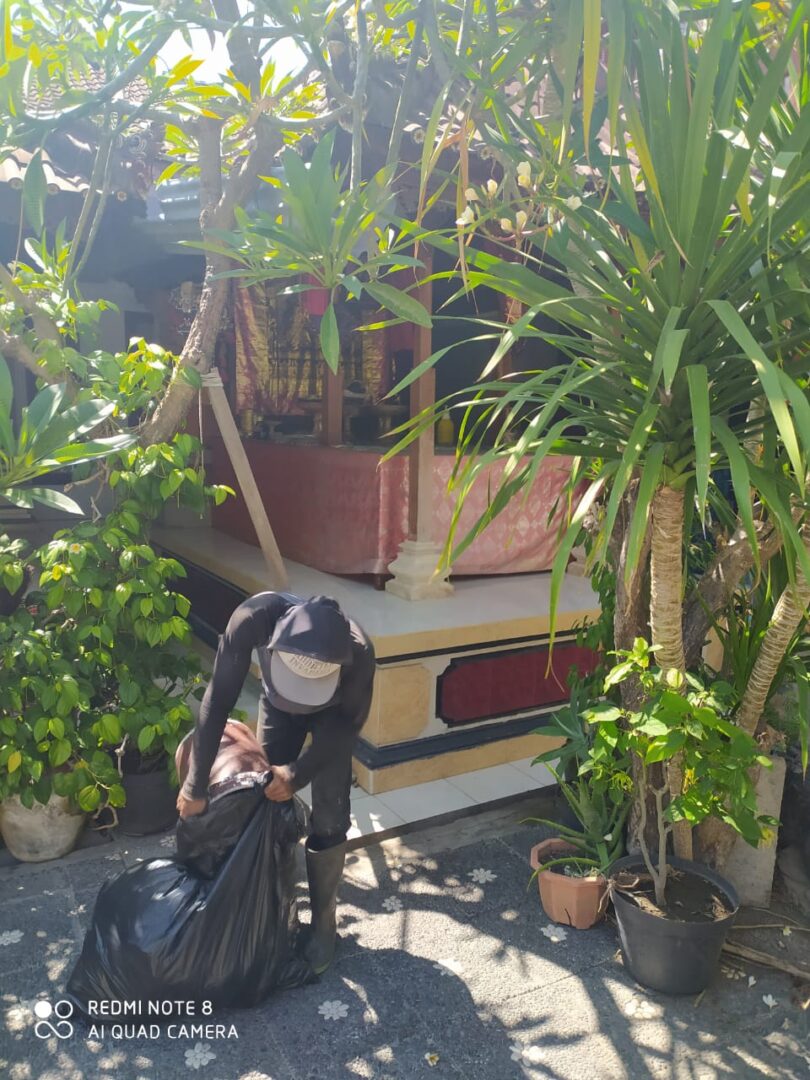
Q. What are some of the challenges you faced in your business journey and how did you overcome these?
As we were formally beginning in 2016, we struggled to secure investment because the investment landscape at the time didn’t prioritize sustainability, impact, or waste management. Investors often didn’t recognize the waste problem. However, we discovered a wealth of funding opportunities in the development sector through grants. So, in 2017, we established the Gringgo Foundation and began securing grants directly. These funds helped us develop our platform and gain government and community support. By 2018, we established the for-profit company to transition project outcomes into viable products. Since then, we have embraced the business-to-business (B2B) approach. We found it more a more manageable approach towards the impact sector, and it aligned with the growing corporate focus on waste management and sustainability.
We ventured into the business-to-consumer (B2C) realm with our apps like our waste identification app, aiming to educate and gather data. With our apps, we aggregate data and engage with communities. Though it wasn’t highly profitable, it significantly impacted our online presence and community engagement. Learning from this, we’re finetuning our approach – revamping our app with a stronger business case and monetization strategy, and focusing on B2B interactions, which align better with corporate sustainability priorities.
We’re growing organically, meeting new people, and learning from them. In the B2B model, understanding our clients’ needs comes first, so networking is key. We don’t have a specific growth strategy; we believe in whatever works. I’ve seen a lot of fast-growing startups that recently imploded because they could not keep up with the growth. Fast growth can be challenging to sustain, so we focus on steady, manageable growth.
Throughout this journey, community development – which was our foundation – has been integral to our success. By tapping into local communities and maintaining open communication with partners, we’ve been able to offer valuable resources and support. This journey has shaped us into what we are today.
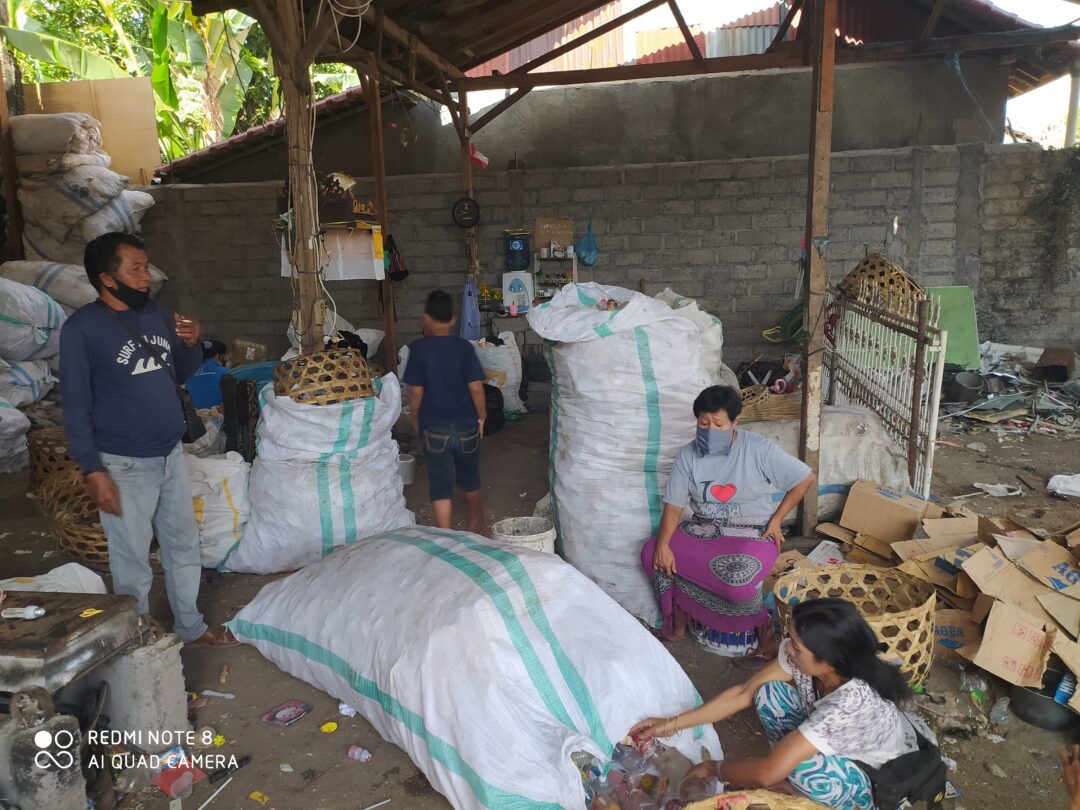
Q. What is your call to action to ASEAN impact business owners?
Talk to people. You just need to talk to people constantly. While being connected is crucial, I also believe in staying informed about local and political landscapes. For example, during the recent presidential elections, many investors held back their funds, uncertain about the future. Once the election concluded, we noticed an influx of investments, especially since the winning candidate pushes business agendas. Being aware of such events is crucial for any businessperson.
Lastly, entrepreneurship is all about action. Don’t get too caught up in the idea of impact; instead, prioritize building a purpose-driven business. Impact should naturally result from your actions. Many startups fail because they focus solely on impact without a sustainable business model. In the ASEAN region, sustainability is still emerging, so it’s essential to prioritize building a robust business foundation first.
*Photos courtesy of Febriadi Pratama.
Learn more about Gringgo on their website: https://www.gringgo.co/
Disclaimers: This article does not constitute the promotion of the featured business. Interviews have been edited for clarity and conciseness.
| #IMPACT ASEAN is an initiative by the ASEAN-Japan Centre to spotlight impact investment & sustainable finance ecosystem actors of ASEAN and Japan. The ASEAN-Japan Centre works as an Enabler collaborating directly with its counterparts to promote impact investment through seminars, collaborative workshops, company visits, and research publications among others. Be a part of the #imapct and send us an email at rpa@asean.or.jp. |


